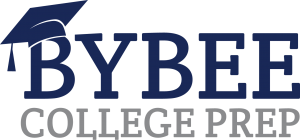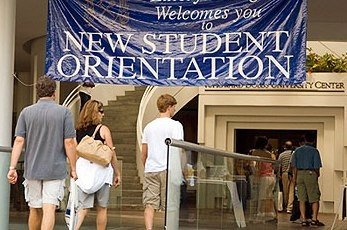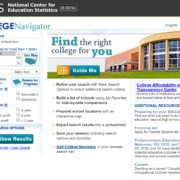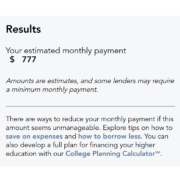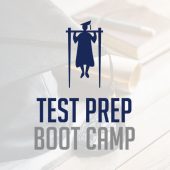Need Blind, Need Aware: What Parents Should Know
As your family navigates the college application process, you’re likely thinking about academics, campus culture, and financial aid. But one important factor that often goes overlooked—yet can play a significant role in admissions decisions—is whether a school is need-blind or need-aware. Understanding these terms can help you better assess where to apply, how to prepare, and what to expect when the acceptance letters start arriving.
What Does “Need-Blind” Admissions Mean?
When a college has a need-blind admissions policy, it means the school does not consider a student’s financial situation when deciding whether to admit them. In theory, your student is evaluated solely on their academic performance, extracurriculars, essays, and other non-financial parts of the application.
them. In theory, your student is evaluated solely on their academic performance, extracurriculars, essays, and other non-financial parts of the application.
This policy is often seen as the gold standard for fairness in admissions. But there are some important caveats:
-
Need-blind doesn’t always mean full aid. Some schools may admit students without considering need but then fail to provide enough financial aid to make attending realistic. Always check whether the school also commits to meeting 100% of demonstrated financial need—these are two different promises.
-
Policies vary by citizenship. Many schools that are need-blind for U.S. citizens and permanent residents are not need-blind for international applicants.
Examples of Need-Blind Colleges (U.S. Citizens)
-
Harvard University
-
Princeton University
-
MIT
-
Amherst College
-
Pomona College
Keep in mind that the list is short—very few colleges are both need-blind and meet full financial need.
What Does “Need-Aware” Admissions Mean?
In contrast, need-aware (sometimes called “need-sensitive”) colleges do consider a student’s ability to pay as part of the admissions decision—especially if the student is on the bubble.
This doesn’t mean that students who need financial aid are automatically at a disadvantage. Many need-aware schools still admit large numbers of students with demonstrated need and offer excellent financial aid packages. But in tight budget years, or when evaluating two equally qualified applicants, a school might choose the one who does not need aid.
Need-aware admissions is a practical reality for many institutions trying to balance enrollment goals and limited financial aid budgets.
Common Need-Aware Colleges
-
Boston University
-
Northeastern University
-
Tulane University
-
American University
-
Most small private liberal arts colleges
Again, need-aware does not mean unfriendly to financial aid—many of these schools offer generous support.
Clearing Up Common Misconceptions
❌ Misconception #1: “Need-blind means we’ll get all the aid we need.”
Not necessarily. A college can be need-blind in admissions but still leave families with a significant gap between cost and aid offered. Always look for whether the school also promises to meet full demonstrated need or offers strong merit aid.
❌ Misconception #2: “We shouldn’t apply to need-aware schools because we need financial aid.”
Not true. If your student is a strong applicant, they can still be admitted to need-aware schools and receive excellent aid. Many schools use a tiered review process where finances are only considered in later rounds. Don’t write off schools that could be a great fit just because they’re need-aware.
How These Policies Affect Your Student’s Application Strategy
For Families Applying for Financial Aid:
-
Apply broadly. Include a mix of need-blind and need-aware schools.
-
Do your research. Look at each school’s aid policy: Do they meet 100% of need? Do they offer merit aid?
-
Be realistic. At highly selective schools, strong need-based aid is more common, but the competition is intense.
-
Ask directly. If you can’t find a school’s policy online, contact the admissions or financial aid office.
For Families Not Applying for Aid:
-
At need-aware schools, being full-pay can be a slight advantage, particularly for borderline applicants. This isn’t guaranteed, but it’s something to be aware of when considering outcomes.
Need-Blind vs. Need-Aware ≠ Merit Aid
Another key point for parents: merit aid and need-based aid are not the same.
-
Need-based aid is awarded based on your family’s financial situation (via the FAFSA and/or CSS Profile).
-
Merit aid is based on your student’s academic or extracurricular accomplishments, regardless of financial need.
A school can be need-aware and still offer generous merit scholarships. Many private colleges use merit aid strategically to attract strong students from a wide range of financial backgrounds.
How to Find Out a School’s Policy
Finding out whether a school is need-blind or need-aware can be surprisingly easy:
-
Google it:
Try searching “Is [College Name] need-blind?”—you’ll often find a clear answer from the admissions or financial aid page. -
Check the Common Data Set:
Many schools publish this annually. Look under Section H (Financial Aid). -
Use tools like College Navigator or the College Board’s BigFuture search.
-
Call or email admissions. If it’s unclear, just ask. Schools are used to these questions.
So What Should Parents Do?
Ultimately, whether a college is need-blind or need-aware is just one piece of the puzzle. More important is whether the school is a good academic, social, and financial fit for your student.
Focus on building a list that includes:
-
Schools that meet your financial criteria.
-
A mix of stretch, target, and safety options.
-
Schools where your student would be happy to attend—regardless of label.
There are many need-aware schools that are incredibly supportive of families needing aid. And some need-blind schools still leave families with unaffordable costs.
It’s all about finding the right match—not just for admissions, but for affordability.
Need Help Navigating College Costs and Aid Policies?
Understanding how financial need affects admissions is complex—but you don’t have to figure it out alone.
📅 Schedule a free introductory consultation with Bybee College Prep. We’ll walk you through how to build a college list that fits your student and your family’s budget—strategically, realistically, and confidently.
